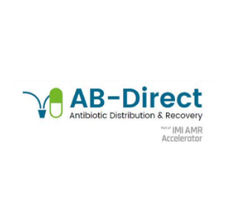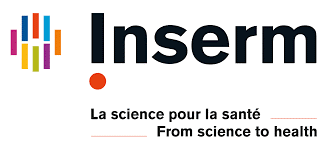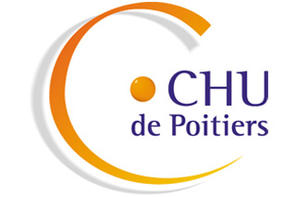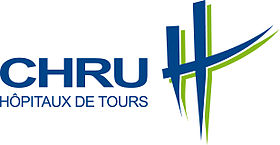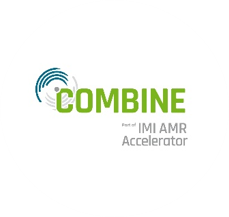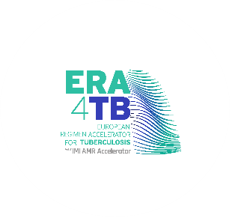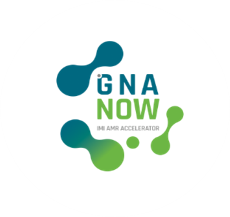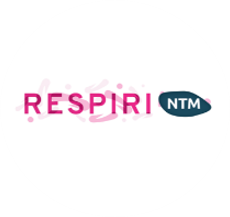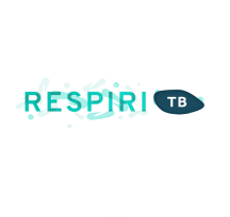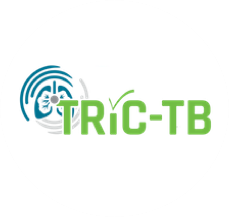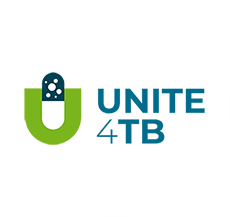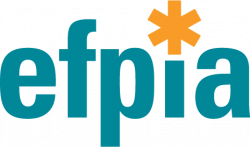AB-Direct reached its end, unveiling the distribution of gepotidacin in tonsillar and prostate tissues.
Read more.
Mission and Vision
Antimicrobial resistance (AMR) is on the rise, and we urgently need new antibiotics capable of beating infections that are resistant to most existing treatments. Gepotidacin is a potential antibiotic that works differently to those antibiotics in use today – lab tests suggest it could be capable of treating many resistant infections.
Currently, it is under development as a treatment for two common infections where AMR is a growing problem: urogenital gonorrhoea (which is caused by Neisseria gonorrhoeae) and acute urinary tract infections caused by Escherichia coli. Now, the AB-DIRECT project aims to explore the potential of gepotidacin as a treatment for infections caused by N. gonorrhoeae or E. coli elsewhere in the body.
Strategy
Gepotidacin is a novel antibiotic currently under development. The objective of the project is to explore a potential new option for the treatment of pharyngeal or prostatic bacterial infections by demonstrating adequate penetration of a novel antibiotic in tonsillar and prostate tissues.
This will be achieved in the project by:
- Conducting in vivo studies to predict human exposures of gepotidacin in healthy and infected prostate;
- Measuring gepotidacin levels in tonsillar and prostate tissue following single oral dose of gepotidacin in subjects undergoing elective tonsillectomy or prostatectomy;
- Refining the PBPK and the population pharmacokinetic (PopPK) models based on the generated clinical data to describe gepotidacin penetration into human tonsillar and prostate tissue;
- Developing a pharmacokinetic-pharmacodynamic (PKPD) model that relates the gepotidacin tissue exposure (PK) with the effect (PD)
- Determining the probability for target attainment for subjects in plasma, prostate and tonsils based on data from the healthy volunteer study to support the evaluation of dosing regimens for disease;
- Analysing the prostate non-clinical and clinical data, evaluating and contributing to the current understanding of translation across species.
Ultimately, the data generated by AB-DIRECT will contribute to a decision on whether or not to run clinical trials of gepotidacin as a treatment for throat infections caused by N. gonorrhoeae or prostate infections caused by E. coli. AB-DIRECT is part of the IMI AMR Accelerator programme.
Governance
To achieve the project aims, AB-Direct focuses on 4 interrelated work packages:
- WP1 Pre-analytical work and clinical studies
The overall objective of WP1 is effectively run the clinical trial and deliver tissue penetration data.
- WP2 Bioanalysis of gepotidacin levels
The overall objective of WP2 is measure gepotidacin levels in samples obtained from WP1.
- WP3 Translational studies and data analysis
The overall objective of WP3 is to build PKPD, PBPK and PopPK models to predict tonsil and prostate distribution of gepotidacin.
- WP4 Management, communication and dissemination
The overall objective of WP4 is to ensure efficient execution and delivery of the scientific objectives and contractual obligations of the AB-DiRecT consortium.
Publications
- Fernow J, Olliver M, Couet W, et al. The AMR Accelerator: from individual organizations to efficient antibiotic development partnerships. Nature Reviews Drug Discovery 2024. Published online September 23, 2024. doi:10.1038/d41573-024-00138-9. Green Open Access available through DiVA.
- van der Klugt T, van den Biggelaar RHGA, Saris A. Host and bacterial lipid metabolism during tuberculosis infections: possibilities to synergise host- and bacteria-directed therapies. Critical Reviews in Microbiology. 2024;51(3):463-483. doi:10.1080/1040841X.2024.237097
Project consortium
About GSK
GSK – is a science-led global healthcare company that researches and develops a broad range of innovative products. The R&D organisation within the company has extensive expertise in designing, executing, analyzing and reporting clinical trials in many therapeutic areas, including infectious diseases. GSK is committed to reporting the results of clinical research that evaluate medicines and vaccines, irrespective of whether the outcomes are perceived to be positive or negative. GSK is an active member of several collaborations focused on developing new treatments for TB, including multi-drug resistant forms of the infection. In 2012, GSK Tres Cantos joined the TB Drug Accelerator Program – a partnership with several pharmaceutical and public-sector research institutions and the Bill & Melinda Gates Foundation, aiming to speed up the discovery of new medicines by collaborating on early stage research.
Contact:
Karen O’Dwyer – karen.m.odwyer@gsk.com
About MedUni Vienna
The Medical University of Vienna (briefly: MedUni Vienna) is one of the most traditional medical training and research facilities in Europe. It is today the largest medical training institute in the German-speaking area with about 8,000 students. With its 26 university hospitals, three clinical institutes, 12 theoretical medicine centres and numerous highly specialised laboratories, it is included among the most important cutting-edge research institutes of Europe in the area of biomedicine. The role of MUW in the programme will be to plan, perform and analyse clinical first in man studies in healthy subjects and studies in specific patient populations with all compounds developed by the consortium. The clinical assessment will cover safety and tolerability. After biochemical quantification of the pharmacokinetic samples in a certified laboratory, pharmacokinetic analysis will be performed to optimize preclinical models as well as PK/PD modelling in other work packages.
About INSERM
Founded in 1964, Inserm is a public scientific and technological institute which operates under the joint authority of the French Ministries of Health and Research. The institute is dedicated to biomedical research and human health, and is involved in the entire range of activities from the laboratory to the patient’s bedside. It also partners with the most prestigious research institutions in the world that are committed to scientific challenges and progress in these fields.
Contact:
Florence Chung – Florence.CHUNG@inserm-transfert.fr
University of Poitiers
Contact: Université de Poitiers is involved as a Linked Third Party of INSERM.
Contact:
William Couet – william.couet@univ-poitiers.fr
Centre Hospitalier Universitaire De Poitiers
Centre Hospitalier Regional Universitaire De Tours
AB-Direct Leader
Karen O’Dwyer
GlaxoSmithKline Pharmaceuticals
1250 S. Collegeville Road
Collegeville, PA
19426, USA
| This project has received funding from the Innovative Medicines Initiative 2 Joint Undertaking under Grant Agreement No 853976. This Joint Undertaking receives support from the European Union’s Horizon 2020 research and innovation programme and EFPIA companies’ in kind contribution. https://www.imi.europa.eu/ |

